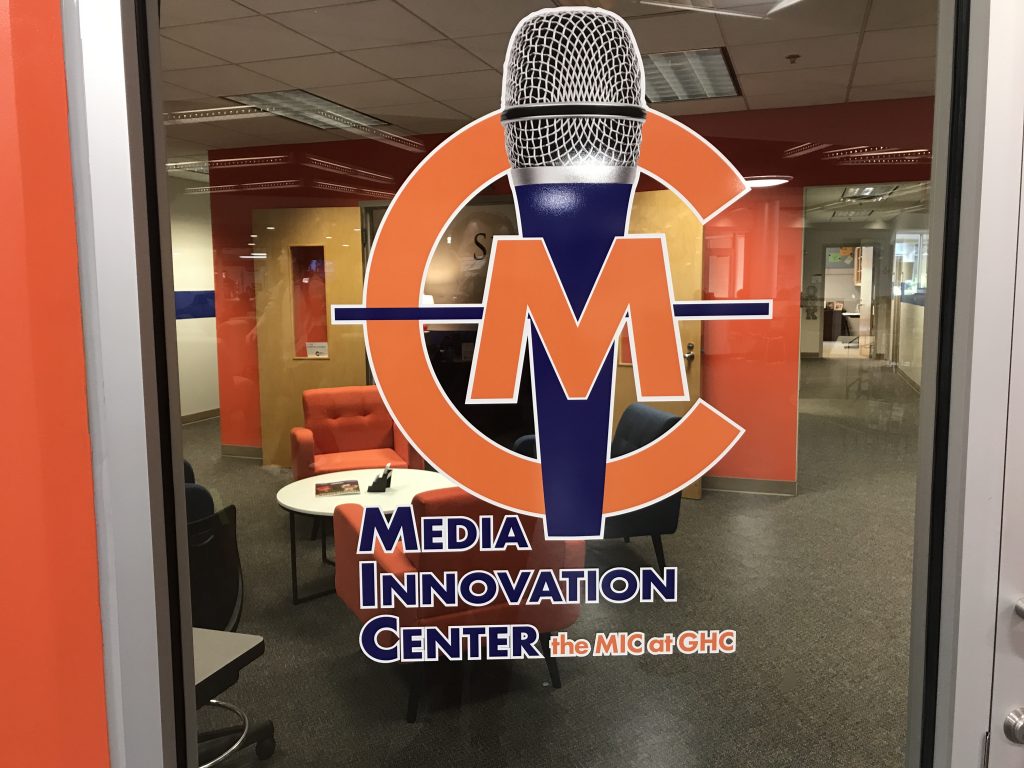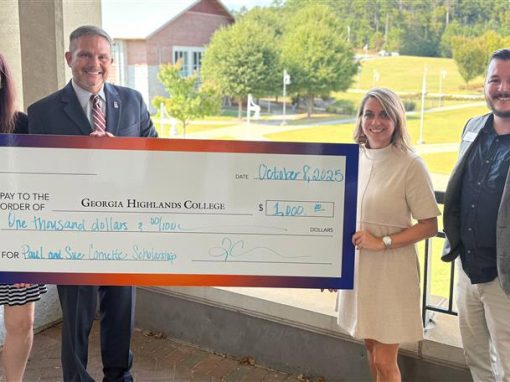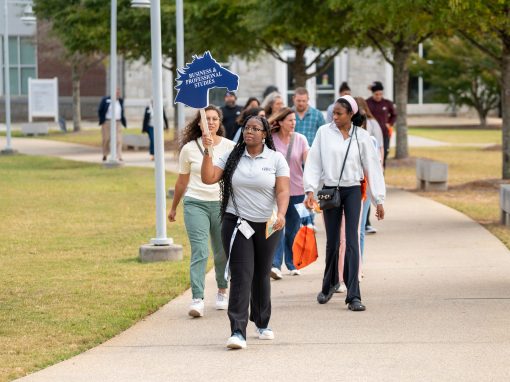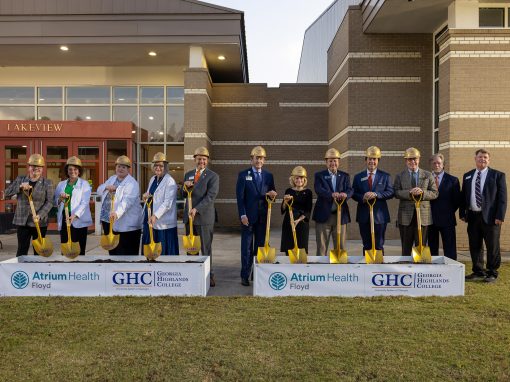Georgia Highlands College (GHC) recently opened the college’s new Media Innovation Center or “the MIC” on the Floyd campus. The new area houses space for the student newspaper the Six Mile Post (SMP), the newspaper’s Student Spin Podcast, the Old Red Kimono (ORK) literary magazine and the Floyd Campus’ Writing Center. The MIC also has a studio for GHC’s Film programs.
The MIC opened this fall in in the David B. McCorkle building.
All students will have access to the MIC and can schedule a time to use industry-standard technology and software to assist in the completion of classroom and personal projects.
“We want to help students facilitate whatever idea or project they are working on related to media,” Interim Dean of Humanities Jessica Lindberg said.
Six Mile Post and Old Red Kimono
As the SMP has grown in terms of how it connects to students – online, print and through the Student Spin podcast – a revamped space was essential.
“This new space is very open, modern and technologically updated,” SMP Faculty Advisor Allison Hattaway said. “I hope that the new office layout will help students feel more comfortable so that they really feel like this is their space.”
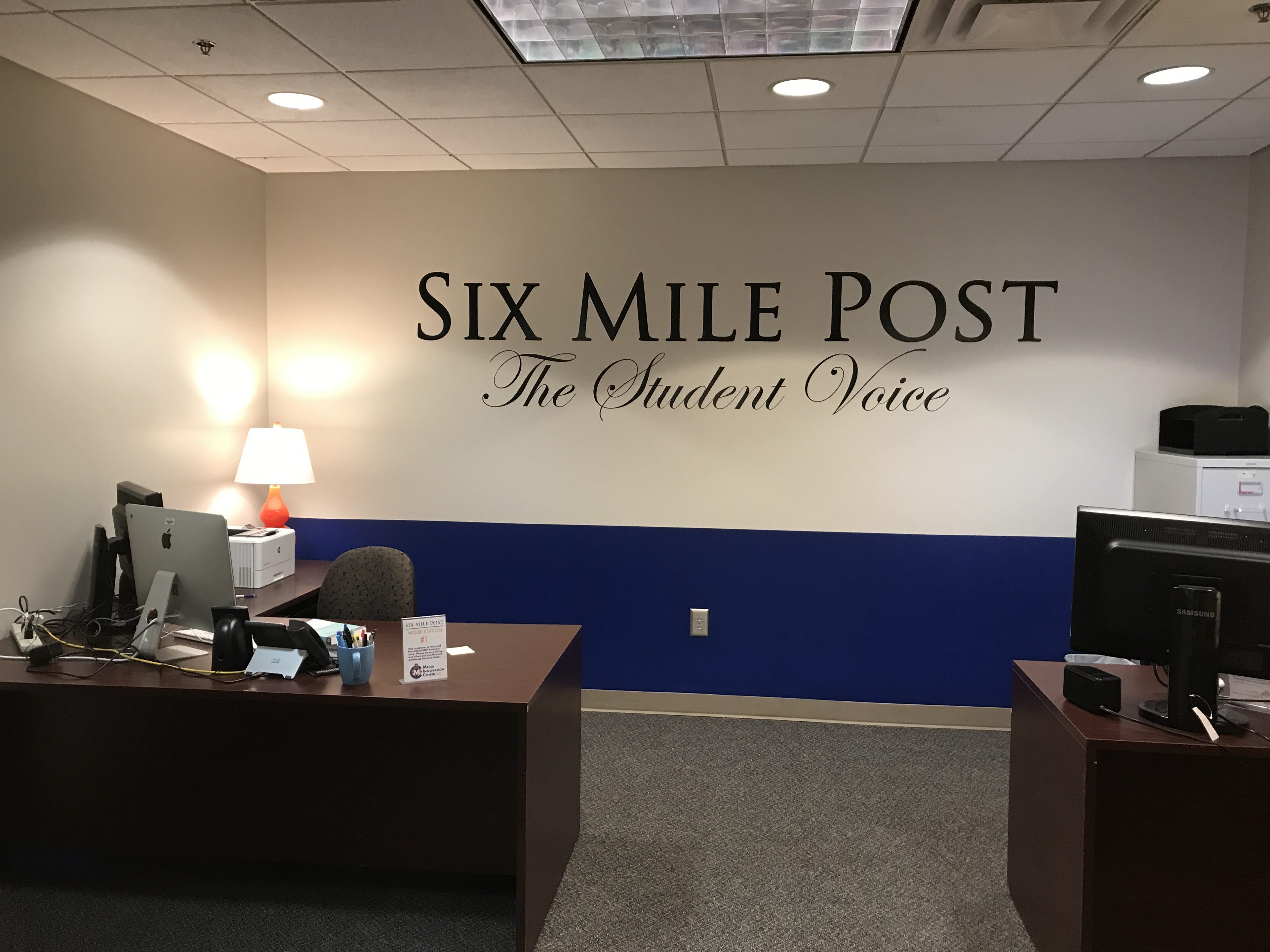
The MIC will place student staffers for the SMP and ORK front and center thanks to the office’s layout, which includes large panel windows. Hattaway said this increased visibility will help attract GHC students to become involved as both readers and contributors to student news publications.
The new space also will allow for community engagement, providing a central location to observe the operations of the SMP, Student Spin and ORK, which could lead to greater networking opportunities for students.
“We’d eventually like to have guest speakers and representatives from local media outlets to observe students working in this new collective space,” Hattaway said.
Film
Although GHC’s Film program just launched in the fall of 2020, students are already working on internships, including the production of professional films, one that included scenes filmed on the Rome campus earlier this summer.
Through the MIC and its Film studio, School of Humanities Chair Seth Ingram said the college will be able to attract more film productions to the Northwest Georgia region, creating more opportunities for students to get hands-on experience.
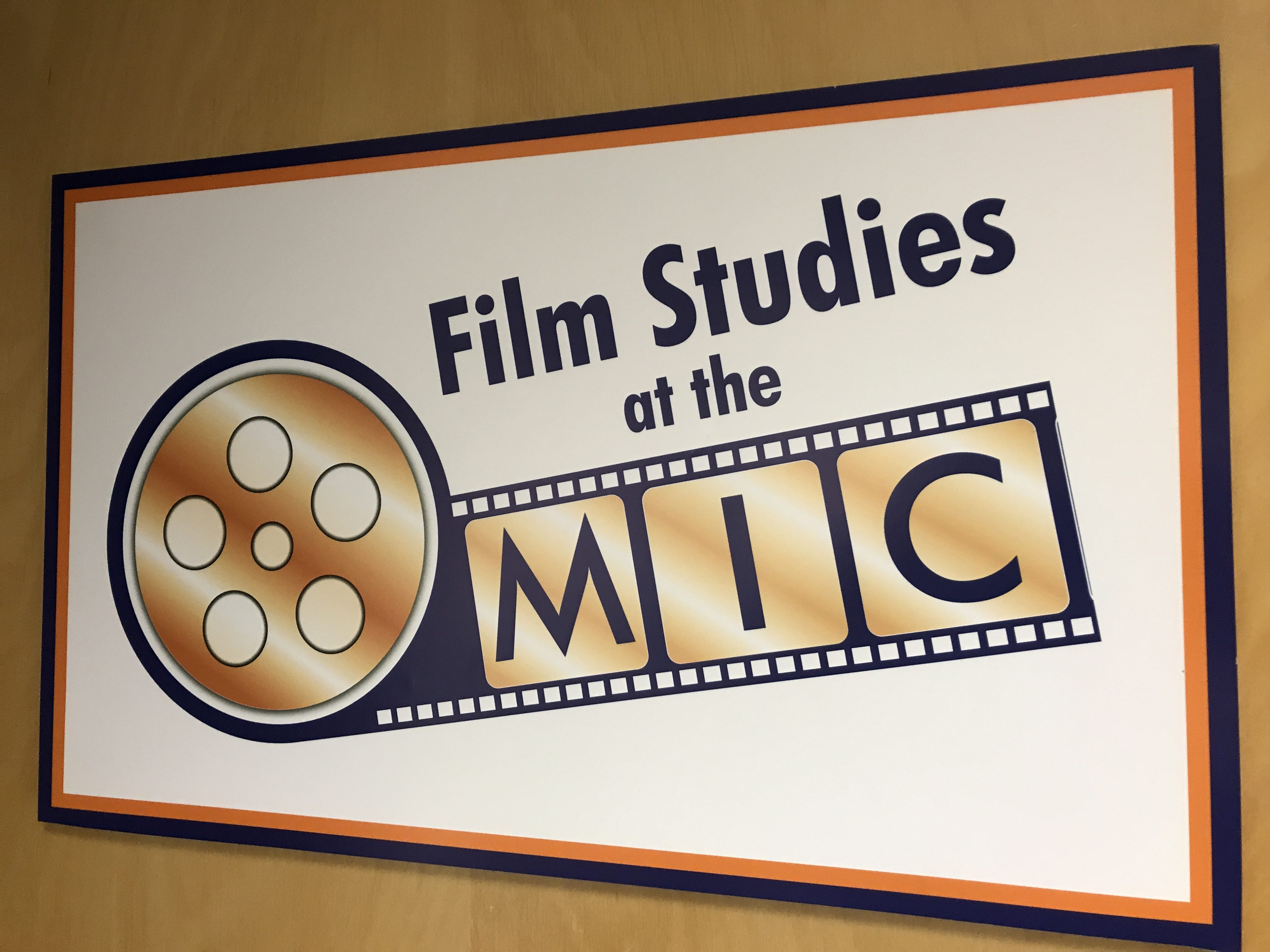
Offering pathways in both Film Production and Film Studies, students can get hands-on experience working with industry tools and equipment. In addition, students from all programs of study will be able to arrange to access this equipment for their academic, professional and personal pursuits.
“The goal is to have the MIC serve as an all-inclusive resource for our students, but will also be home to the Film program,” Ingram said.
Writing Center & Collaboration
One mission of the MIC is to provide cross-curricular assistance to students. As the new home to GHC’s Writing Center, students will have access to additional help in becoming more effective communicators.
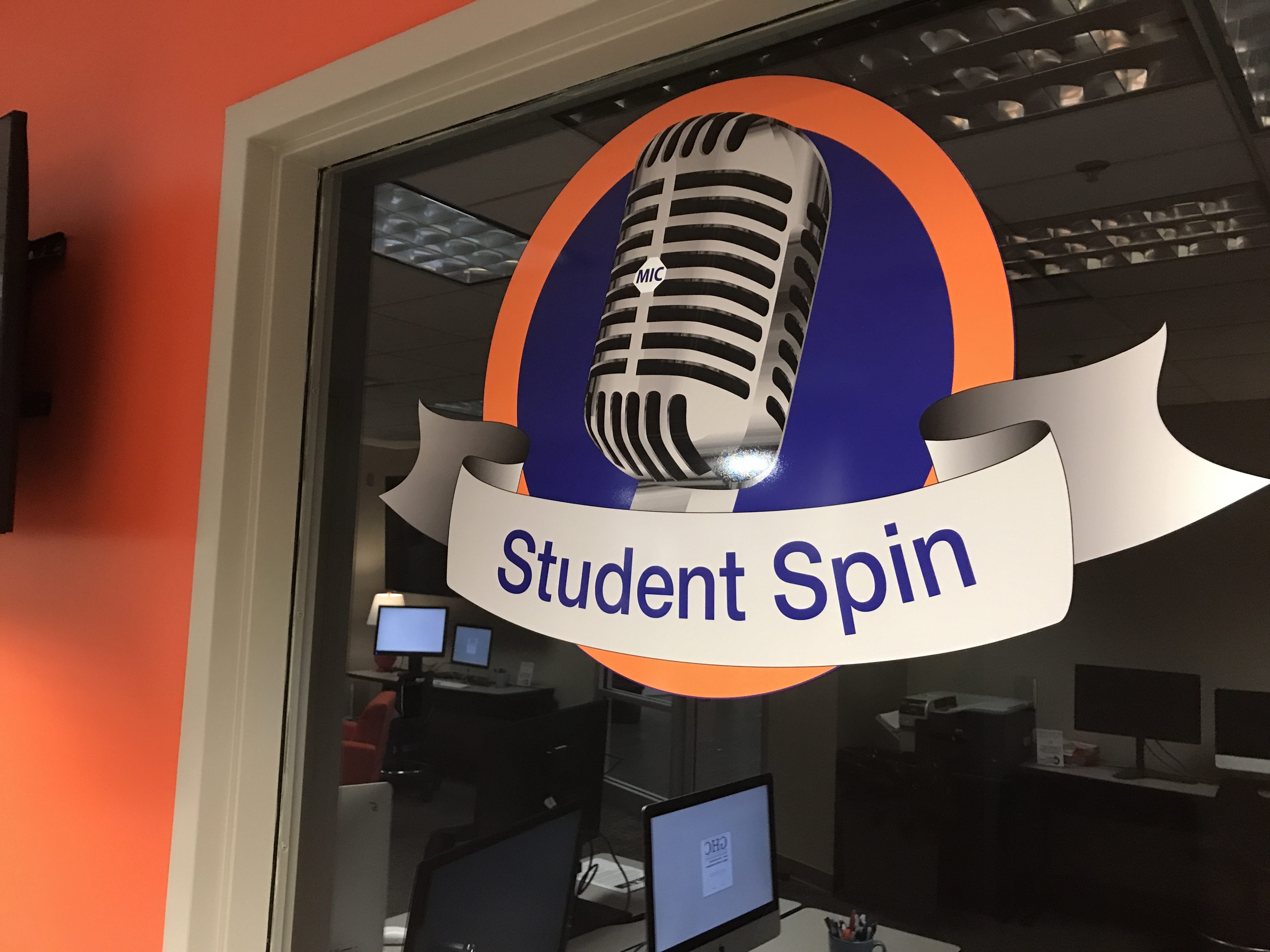
Led by English Instructor Shannan Harrington, the Writing Center will help students to better approach writing assignments by guiding them in the areas of brainstorming, outlining, research, revision and grammar.
“From beginning support in English to helping graduates with their cover letters and resumes, the Writing Center will help students with whatever they need in terms of writing support,” Harrington said.
Hattaway said housing these student publications alongside the Writing Center and Film program will help give all students a chance to branch out and explore new opportunities on campus to grow as students and as individuals.
“A lot of times students may think ‘I’m not a strong writer, so I don’t have a place on a newspaper staff,’ or ‘I’m shy, so I don’t have a place on a podcast program,’” Hattaway said. “We want all students to have a place at the MIC.”
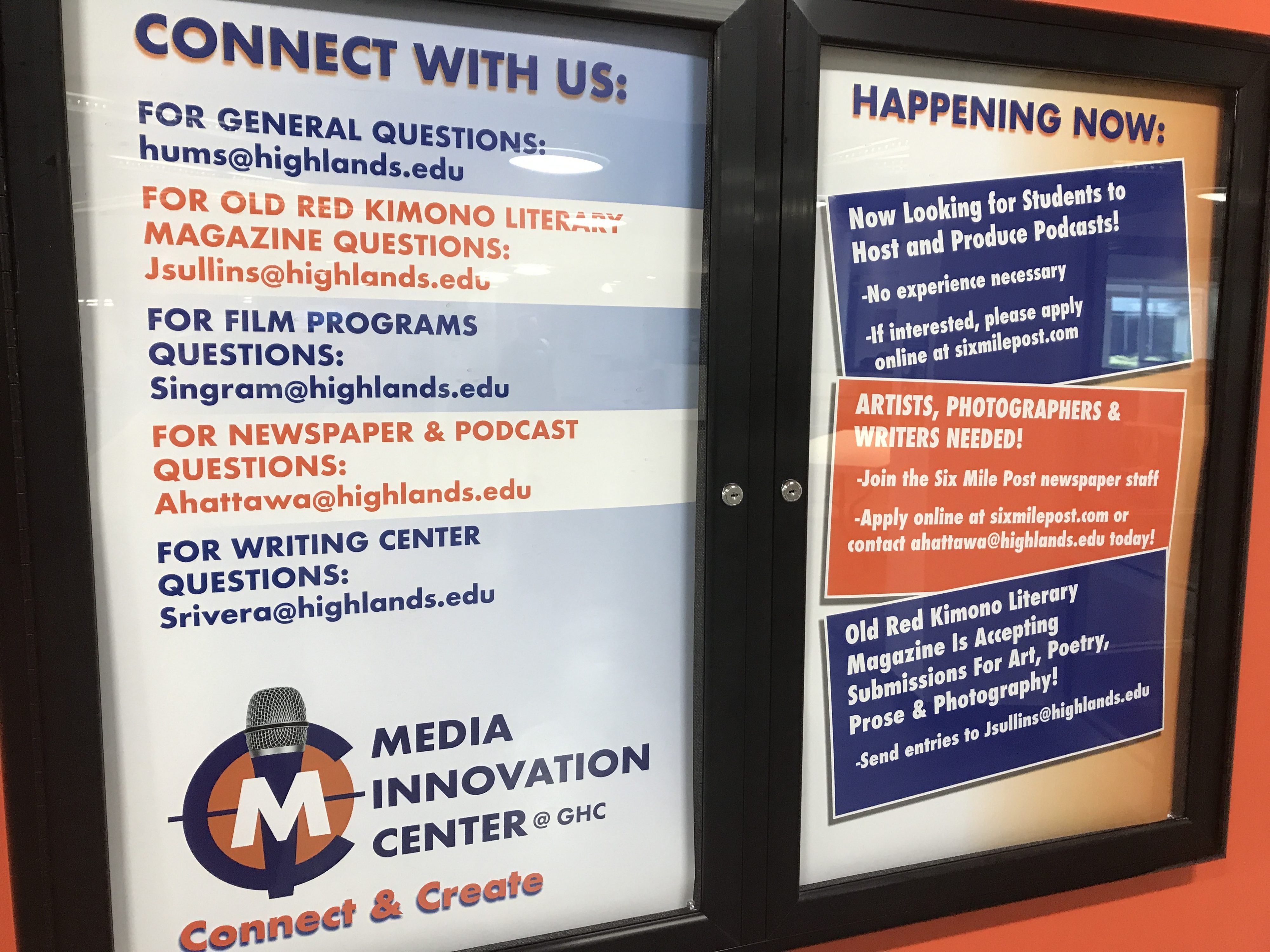
For example, students without a background in writing or feel uncomfortable having a public-facing role could help to develop an outline for a program to air, recruit interview subjects for a podcast, or can gain professional experience working with others on one of GHC’s student productions.
“Some students might not realize there are so many opportunities to apply transferrable skills, and the MIC is a great place to start,” Hattaway said.
